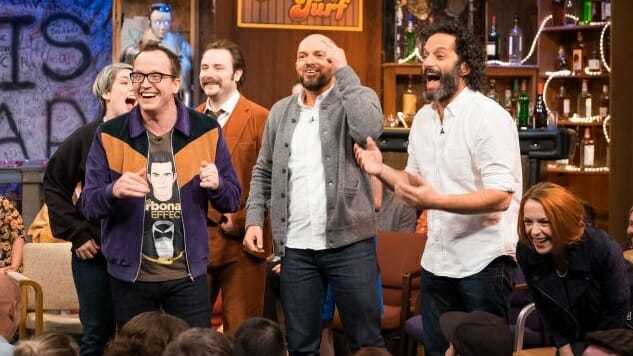The Chris Gethard Show Was Good, and Cool, and Shall Be Missed

On Monday Chris Gethard announced the end of The Chris Gethard Show. After seven years, three networks and over 200 episodes, its star and creator is wrapping it up in what he calls a “mutual decision” with its latest home, TruTV. And although Gethard has framed it as something of a relief in his Facebook post and a Village Voice interview that went up today—as an opportunity to focus on new projects—it’s still sad to see TV lose something this unique.
During its time on the air, The Chris Gethard Show resurrected the anarchic spirit of early cable TV, when many hours had to be programmed and the industry was less rigid in how it would fill them. Anybody who grew up watching local TV, public access, or end-of-dial cable in the ’80s and very early ‘90s probably remembers how ramshackle TV could get when ratings and dollars were in short supply. It was the kind of freedom often found in the early days of a new medium—even though TV had been around for decades, the cable explosion of the ‘80s essentially created an entirely new business—and as usually happens that freedom was gradually beaten out of cable during the ‘90s.
-

-

-

-

-

-

-

-

-

-

-

-

-

-

-

-

-

-

-

-

-

-

-

-

-

-

-

-

-

-

-

-

-

-

-

-

-

-

-

-








































